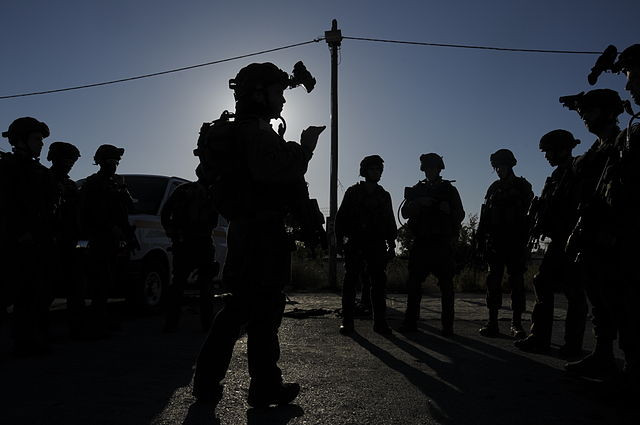In a significant escalation of its military campaign in the occupied West Bank, Israel has announced the killing of three Hamas operatives, including a key commander, Wissam Khazem. The Israel Defense Forces (IDF) confirmed the deaths on Friday as its operations in the region extended into their third day.
The IDF reported that Khazem, identified as the leader of Hamas in the city of Jenin, was killed in a gunfight after being detected in a vehicle. According to the military, the vehicle contained weapons and a substantial amount of cash. Two other individuals, Maysara Masharqa and Arafat Amer, were also killed while attempting to flee the scene. Both were described as Hamas members operating under Khazem's command and were involved in attacks against Israeli targets.
The Al-Qassam Brigades, the armed wing of Hamas, confirmed the deaths of Khazem, Masharqa, and Amer. The Al-Aqsa Martyrs Brigades, a faction within the broader Palestinian militant landscape, acknowledged Masharqa's status as a prominent field commander. This operation underscores the intensified Israeli military strategy in the West Bank, which has seen frequent clashes since the beginning of the conflict with Hamas on October 7.
The broader Israeli operation, which includes significant military activity in Jenin, Tubas, and Tulkarem, has resulted in 19 Palestinian deaths so far, according to the Palestinian Ministry of Health. The IDF reported that 11 of these fatalities were militants, including the leader of the local Islamic Jihad branch, Muhammad Jabber, known as Abu Shujaa. Jabber's death occurred during a firefight in Tulkarem, highlighting the ongoing violence in the region.
The IDF's increased actions in the West Bank come as Israeli Foreign Minister Israel Katz has advocated for a Gaza-style military approach to counter what he describes as "Islamic-Iranian terrorist infrastructure." Katz's comments reflect Israel's concerns about Iran's influence in the region, suggesting a coordinated effort with Hamas and Hezbollah against Israeli interests.
The escalating conflict has drawn international criticism. United Nations Secretary-General António Guterres expressed deep concern over the operation, highlighting the humanitarian impact of the ongoing violence. The British government also voiced apprehension, emphasizing the need for de-escalation amidst reports of civilian casualties and infrastructure damage.
As clashes between Israeli forces and Palestinian militants continue, the humanitarian toll has been severe. The Palestinian Ministry of Health reported that since October 7, more than 650 Palestinians, including 150 children, have been killed in the West Bank and East Jerusalem, with over 5,400 others injured. This violence has compounded the already dire situation for Palestinian communities in the occupied territories.
Israeli authorities have argued that their operations are necessary to combat militant threats, including alleged support from Iran for local militant factions. The Israeli military's actions reflect a broader strategy to address what it perceives as escalating threats from various militant groups operating in the West Bank.




